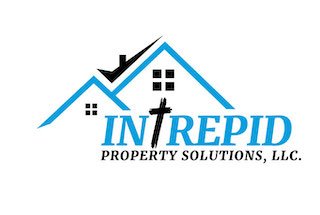If you have invested in a note or are thinking of investing in one, your first thoughts will be the value of the note – how much is it worth and how much can you buy or sell it for?
So you’re probably wondering how to understand the value of a real estate note in COLUMBIA note buyers and sellers.
There isn’t an easy answer but in this blog post, you’ll learn some of the ways that a note can be valued, to make you better informed…
How To Value A Real Estate Note For COLUMBIA
While not all of these factors will influence the value of every note, it’s important to see how a note can be valued. Probably the best strategy is to get in touch with us and we can help you understand how we value the notes we sell. Reach out to our team by clicking here or by calling 803-670-8355.
- You can value a note by the amount owed on the note, including both the principal and interest owning.
- You can value a note by whether or not it’s a performing or non-performing note (although the definition of performing versus non-performing varies, in general, you’ll find that a non-performing note is one where the person who is supposed to be paying the underlying mortgage is not paying it back. It’s important to note that non-performing notes still have a value!)
- You can value a note by what position that note has in a line-up of mortgages on the property (such as a first position or a second position).
- You can value a note by how much equity is in a note (notes may be equity, partial equity, or no equity).
As you can see, many factors can go into how to value a real estate note for SC note buyers and sellers. In some ways, even the economy and the location of the property will play a factor in the value of the note, since houses in some areas might be priced lower than houses in other areas.
If you’re thinking about investing in notes, you also need to remember this: the value of a note is not just the specific price of how much the note costs to invest in, but rather how much value you’ll get out of the note once you’ve invested in it.
Valuing a real estate note involves assessing various factors that influence its worth, and while not all factors will apply universally, understanding these elements is crucial for potential investors. One effective approach to comprehending note valuation is to consult with professionals who specialize in this niche market. By reaching out to our team, investors can gain insights into the specific methodologies we employ to evaluate and price the notes we offer for sale. Whether through direct communication or by utilizing our contact information provided, investors can access expert guidance tailored to their unique investment goals and preferences.
Several key factors contribute to the valuation of a real estate note, including the outstanding balance encompassing both principal and accrued interest. Additionally, distinguishing between performing and non-performing notes is essential, with non-performing notes still holding intrinsic value despite the borrower’s default status. Furthermore, the note’s position in the mortgage hierarchy—whether it holds a first or second position—impacts its valuation, as does the amount of equity embedded within the note, ranging from full equity to partial equity or none at all.
Moreover, external factors such as economic conditions and property location can influence note valuation, with regional disparities in housing prices contributing to variations in note values across different markets. Investors must recognize that the value of a note extends beyond its initial purchase price, encompassing the potential returns and benefits derived from the investment over time.
In essence, investing in real estate notes requires a comprehensive understanding of the multifaceted factors that contribute to note valuation, as well as a strategic outlook focused on maximizing the value and potential returns of the investment. By partnering with knowledgeable professionals and leveraging their expertise, investors can navigate the intricacies of note investing with confidence and optimize their investment outcomes in the dynamic real estate market.
Example: Consider two investments – a portfolio of performing notes or, for the same price, a rental property. Different investors may have different opinions on which one is valued higher even if they could be bought for the same price… but the portfolio of performing notes will generally produce cash flow with little or no work while the rental property may require a lot of work to maintain. (Note: this is a simplification for illustration purposes only; of course, there are other factors at work here!)

